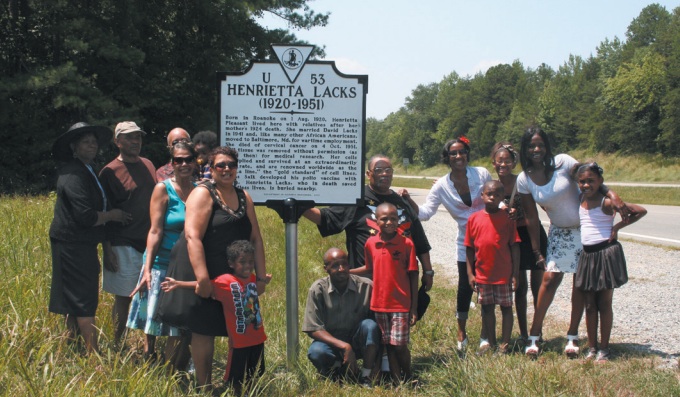The End of the Henrietta Lacks Saga?
The U.S. National Institutes of Health created an agreement with the Lacks family regarding access to the HeLa genome
Sixty-two years ago, Henrietta Lacks, a poor African American, passed away from cervical cancer in Johns Hopkins Hospital. But not before a sample of her tumor cells were taken without her consent. Her cells went on to become the immortal HeLa line, infinitely reproducing and leading to scientific insights into cancer, AIDS, genetics and much more. Her case has raised significant ethical questions about the nature of research, consent and genetic material, but now, a comment piece, published today in Nature, suggests that the contention surrounding Lacks and her surviving family members may come to an end.
As journalist Rebecca Skloot’s bestselling book, The Immortal Life of Henrietta Lacks, made clear, Lacks’ family harbored a deep discontent about their relative’s stolen cells. They were never informed that Lacks’ cells were taken; they never received any royalties from the HeLa line; and researchers often ignored Lacks’ great personal legacy.
Here’s the run-down of the key events in this story:
- 1951: Henrietta Lacks passes away. Doctors take a tissue sample from her body, without her consent and without informing her family.
- 1970s: Researchers begin asking the Lacks family for DNA samples, and the family finds out about the HeLa line.
- 1976: The Detroit Free Press and Rolling Stone publish stories about Lacks. Without a clear explanation of what has happened to Lacks’ cells, some of her family members believe that clones of their relative are walking around or that Lacks somehow is still alive.
- 1980s and 90s: Reporters hound the family, who soon become hostile towards anyone seeking information about their famous relative.
- 2010: After around a decade of research, including spending extensive time with Lacks’ family, Rebecca Skloot publishes The Immortal Life of Henrietta Lacks
- July 2011: The U.S. Department of Health and Human Services solicited public input on participants’ roles in research, including questions about consent regarding samples taken in the past. The department is still working on a new proposal based upon that feedback.
- March 2013: Scientists from the European Molecular Biology Laboratory sequence and publish Lacks’ genome online, making the information freely accessible. Though this move did not break any rules, Lacks’ family members were not consulted, and were upset. The genome sequence is taken down.
The incident last March inspired the U.S. National Institutes of Health to create an agreement with the Lacks family regarding access to the HeLa genome, the commentary reports. The authors continue:
Together, we have crafted a path that addresses the family’s concerns, including consent and privacy, while making the HeLa genomic sequence data available to scientists to further the family’s commitment to biomedical research.
After three lengthy meetings with the Lacks family and several one-on-one meetings with NIH scientists, the family consented to allow scientists to use the HeLa genome, so long as it is kept in a control-access database. To gain access, researchers will have to file applications with the NIH and agree to terms set by both the agency and the Lacks family. Additionally, researchers who use this database will have to list the Lacks family and Henrietta Lacks in their acknowledgements.
Not to waste any time, scientists have already began giving Henrietta Lacks and her family an appropriate hat-tip. From the acknowledgements section of a new paper, also published today in Nature, that delves into HeLa’s genome, researchers from the University of Washington write:
The genome sequence described in this paper was derived from a HeLa cell line. Henrietta Lacks, and the HeLa cell line that was established from her tumour cells in 1951, have made significant contributions to scientific progress and advances in human health. We are grateful to Henrietta Lacks, now deceased, and to her surviving family members for their contributions to biomedical research.
More from Smithsonian.com:
Scientists Published Henrietta Lacks’ Genome Without the Consent of Her Family
‘Fair’ Use of Our Cells
/https://tf-cmsv2-smithsonianmag-media.s3.amazonaws.com/accounts/headshot/Rachel-Nuwer-240.jpg)

/https://tf-cmsv2-smithsonianmag-media.s3.amazonaws.com/accounts/headshot/Rachel-Nuwer-240.jpg)